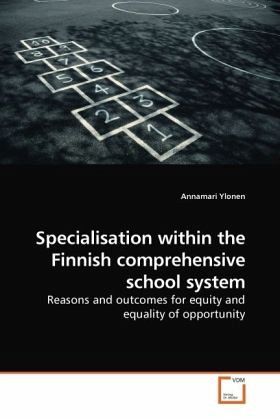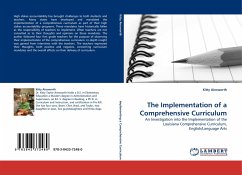
Specialisation within the Finnish comprehensive school system
Reasons and outcomes for equity and equality of opportunity
Versandkostenfrei!
Versandfertig in 6-10 Tagen
52,99 €
inkl. MwSt.

PAYBACK Punkte
26 °P sammeln!
The passing of radical educational legislation in the 1990s in Finland has had far-reaching impacts on the comprehensive school system. This thesis discusses specialisation within the comprehensive school using the analytical lens of equity and equality of opportunity. The key questions are: first, what influences the interpretation of national educational policies regarding choice/diversity and equity/equality of opportunity at the local level; second, why and how schools in the case study city have specialised; and third, what impact this has had on equity and equality of opportunity. The fi...
The passing of radical educational legislation in the 1990s in Finland has had far-reaching impacts on the comprehensive school system. This thesis discusses specialisation within the comprehensive school using the analytical lens of equity and equality of opportunity. The key questions are: first, what influences the interpretation of national educational policies regarding choice/diversity and equity/equality of opportunity at the local level; second, why and how schools in the case study city have specialised; and third, what impact this has had on equity and equality of opportunity. The findings emphasise decision-making, which reflects the particular economic and demographic circumstances in the municipality as well as concerns about social justice. The outcomes of some of the educational decision-making were found to increase inclusiveness and equality rather than exclusiveness and selection. The analysis should be of interest to anyone interested in market- oriented reforms in state education and the different ways that such reforms can be introduced, and in the various underlying reasons and outcomes of these types of reforms.












